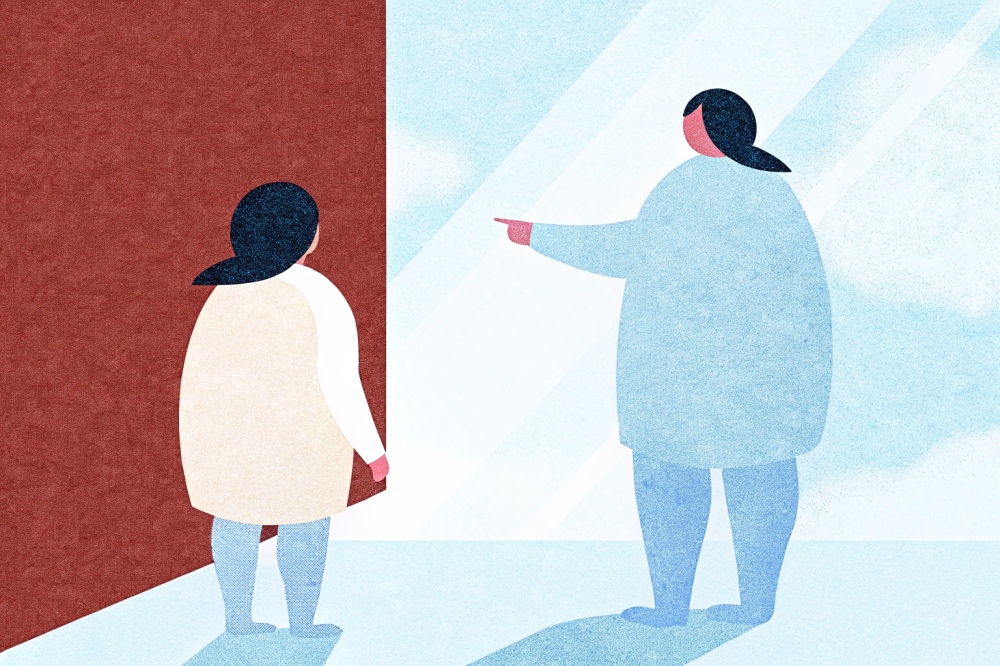The hidden burden of obesity stigma we need to talk about
Weight bias shapes perceptions early and continues to affect individuals into adulthood.

OBESITY has long been a stigma embedded in society, with its roots often taking hold during childhood.
From classrooms to family, weight bias shapes perceptions early and continues to affect individuals into adulthood, creating a cycle of discrimination that is difficult to escape.
Research shows that children who are overweight or obese are more likely to face bullying and ridicule in schools, not just from peers but sometimes from teachers as well.
For Aida Tahir, a 35-year-old obese patient, the weight of obesity stigma has been a constant shadow since her childhood. The scars it left behind are more than just emotional—they have shaped her sense of self and her journey through life.
"The stigma around obesity obviously has a profound impact, not just on an individual level but also within the community. I'm not just speaking from my own experience but also from what I’ve seen among friends and acquaintances in the same situation," she said in a forum.
Aida’s story begins in her school years, where judgment and stereotyping were evident, even from teachers.
"I remember one of my teachers singling me out in front of the entire class. She said, 'Oh, I think Aida, you’re going to have the tendency of being a large person once you grow up', saying that in front of everyone in the class and she loves to pinpoint me. That gave a psychological, emotional impact on me," she said.
Those words echoed in her mind throughout her adolescence. Despite her efforts to lose weight, Aida found herself overwhelmed by the lack of proper guidance.
"People would tell me to lose weight, but no one explained how. Where do you start? What small steps should you take? It’s not as simple as people think," she said.
The stigma extended into adulthood, infiltrating not only Aida’s personal life but also her workplace and professional growth.
“I’ve seen colleagues not being given opportunities to climb the ladder or present proposals simply because they didn’t look ‘presentable’ due to their weight. It’s heartbreaking. Talent and ability are overshadowed by size.”
Aida highlights the far-reaching consequences of weight bias. “It’s not just about physical health. There are mental challenges, social exclusion, and even economic consequences. You fear being judged and ostracised. You’re constantly labeled," she said.
Despite these challenges, Aida sees a glimmer of hope in platforms that provide a voice for individuals like her. She also believes intervention needs to begin early.
To address such pervasive issues, experts are calling for comprehensive educational reforms and the implementation of inclusive policies aimed at tackling weight stigma at its core.
Head of Endocrinology Subspecialty Service of the Health Ministry Dr Nurain Mohd Noor emphasised the need to stop the 'obesity' stigma early.
"Obesity stigma is ingrained in the culture and it starts from a very young age. In schools, in families, and even within the healthcare system, we carry that stigma.
"This needs to be addressed at an early age, as healthcare providers can sometimes hold onto these fixed mindsets, which makes it difficult to change them later," she said.
According to her, the stigma surrounding obesity is not just about perceptions; it has practical implications for healthcare and treatment.
Dr Nurain highlighted the importance of sustainable dietary habits tailored to cultural preferences.
"We must remember that treatment needs to be sustainable. For example, a patient once cried when a doctor advised her not to eat rice, which is a staple in her diet.
"The doctor suggested bread instead, but that’s not a long-term solution for her. We need to ensure that the treatment plan aligns with cultural norms to make it sustainable for the patient," she said.
Meanwhile, Deputy Director of Non-Communicable Diseases of the Health Ministry Dr Noraryana Hassan stressed the importance of targeted policies to address obesity.
"Currently, our health policies are not sufficiently focused on body diversity. Programmes often target the general population, but the real issue is that we need to create initiatives specifically for those affected by obesity.
"We also need to focus on effective interventions, such as pharmacological treatments and surgical options, where necessary," she said.
Dr Noraryana further emphasised the need to improve the impact of obesity programmes, particularly in schools.
"We need to ensure that the activities we implement are not just contests but are aimed at real, sustainable change. We’re working on policies that will better address obesity treatment, and 2025 will be a crucial year for implementation. We can’t keep discussing these issues—we need action," she added.
Addressing obesity, experts agree, requires a multifaceted approach that combines education, policy change, and support systems at every level—from family to healthcare providers.
As Malaysia works towards new policies and initiatives, the hope is that the stigma surrounding obesity will be reduced, creating a more inclusive society where individuals of all body types are valued and supported in their health journeys.
Download Sinar Daily application.Click Here!















